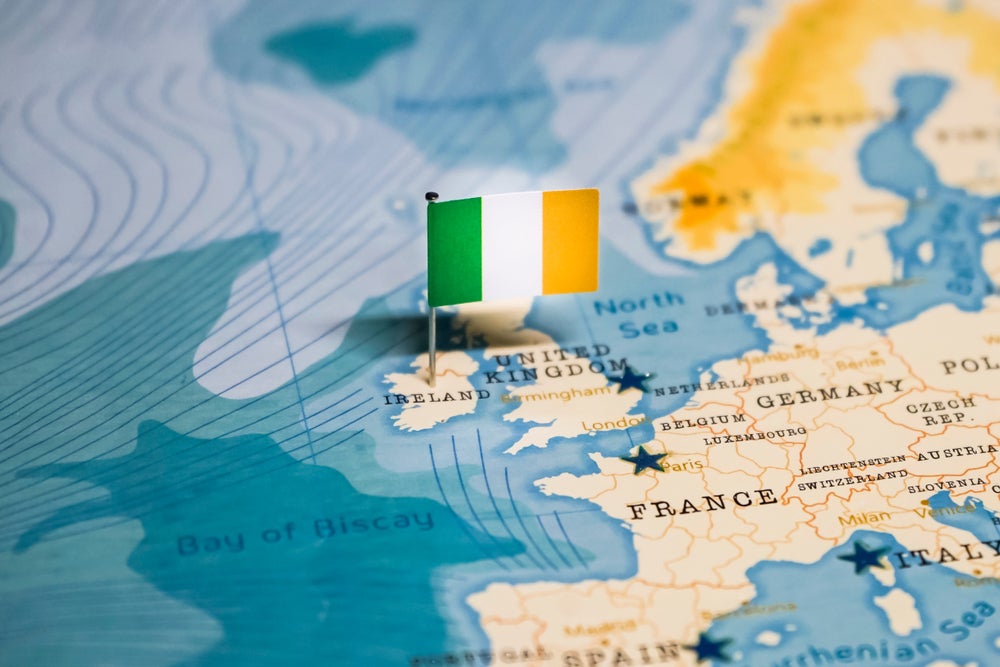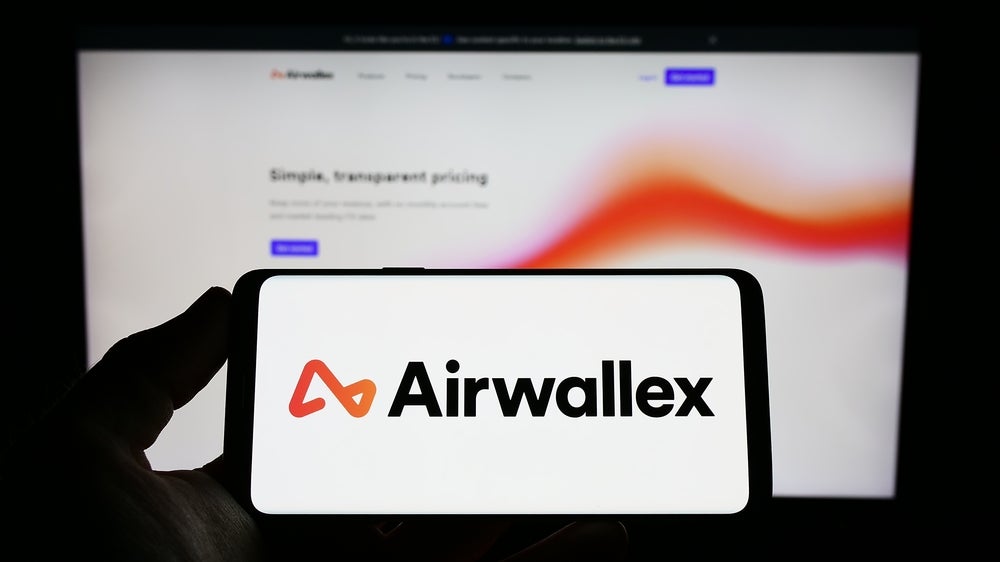MasterCard’s recent media and analyst symposium was the
setting for several announcements of new initiatives, which the
payment network hopes will propel it into the future. One key
initiative will see MasterCard encourage developers to create
applications, as tech giant Apple has. Victoria Conroy
reports.
 With 85% of the world’s
With 85% of the world’s
retail transactions still conducted with cash, and global consumer
cheque volume equalling $9trn, MasterCard contends that the war on
cash and paper is very much alive and well, and at its recent media
and analyst symposium the payment network announced that leveraging
technology would be its greatest weapon in the ongoing fight.
The bigger picture is that by using
new technology to displace cash and cheques, MasterCard expects
between 8 to 10% market growth over the next five years, along with
between 3 to 5% growth from strategic investments.
Given that 55% of MasterCard’s
revenue comes from outside the US, new payment solutions also need
to be global in nature, while taking into account local
behaviour.
How well do you really know your competitors?
Access the most comprehensive Company Profiles on the market, powered by GlobalData. Save hours of research. Gain competitive edge.

Thank you!
Your download email will arrive shortly
Not ready to buy yet? Download a free sample
We are confident about the unique quality of our Company Profiles. However, we want you to make the most beneficial decision for your business, so we offer a free sample that you can download by submitting the below form
By GlobalDataLeveraging the power of
technology
To further its technology-focused
growth strategy, MasterCard has made several acquisitions over the
last couple of years, the most notable being that of Irish-based
software developer Orbiscom in 2008. Orbiscom developed the
inControl solution, enabling cardholders to determine how, when and
where their card can be used, and to receive real-time
notifications via e-mail or SMS when certain predetermined
conditions occur. inControl functionality is now available across
the entire suite of MasterCard products.
In April 2010, Garry Lyons,
previously CEO of Orbiscom, was brought into the MasterCard team as
group executive of research and development with principal
responsibility for MasterCard Labs, the payment network’s research
and development unit.
Through MasterCard Labs, Lyons will
be responsible for building payment advancements and leveraging
enhanced time-to-market capabilities to drive innovations through
conceptualisation, proof of concept, pilot, and support
commercialisation, in order to deliver additional value to
customers and consumers.
At the symposium, Lyons outlined
the objective of MasterCard Labs.
He said: “MasterCard Labs was
created so that we could innovate faster while leveraging our
presence in the payments space. MasterCard Labs is focusing on
revolutionary and breakthrough innovations, to create new
businesses and revenue streams for MasterCard.
“We will speed up the innovation
process by identifying and incubating new ideas which if successful
will be fed through the same roll-out process that innovations like
PayPass have gone through. If we fail, we will fail quickly and
cheaply so that we can take the elements that did work and
incorporate them into other innovations.
“We will reduce cost, waste, but at
the same time we’ll preserve the strength of our brand and our
reputation.”
Replicating the Apple
model
 At a time when social networking, consumer interaction,
At a time when social networking, consumer interaction,
smartphones and technology are converging at a rapid pace,
MasterCard Labs is looking to replicate the success that tech giant
Apple has had by allowing external software developers to create
applications (apps) for its wildly successful iPhone – there are
now over 200,000 iPhone apps available from Apple.
According to Lyons, the success of
the iPhone – while initially driven by simplicity of design and
cutting-edge technology – is largely down to the wide range of
user-friendly apps on offer that have met consumer needs and
encouraged greater usage and uptake of the iPhone. And it is this
interactive approach that MasterCard is hoping will drive uptake of
its own products and services.
Lyons said: “One of the first
things MasterCard Labs is working on is our developer portal and
Open API, and these were chosen for specific reasons. We recognise
the importance of the developer community and we want to encourage
others to use all the features that we have on offer to help create
innovation.
“Whereas the likes of Apple gave
developers controlled access, what we’re doing with Open API is
providing controlled access to the features of our network. We’ll
remain at the heart of innovation without necessarily being
responsible for the cost of those innovations ourselves.”
Ed McLaughlin, chief emerging
payments officer at the network, reiterated the theme of technology
changing and shaping consumer behaviour, and how MasterCard is
differentiating itself from its competitors. And underpinning it
all is its network.
“Relentless and continuous
innovation at MasterCard will be the key driver for the network
going forward,” he said. “There are powerful forces out there, such
as things that are happening in emerging markets through financial
inclusion, and new consumer expectations in developed markets.
“We see a big move towards things
like personalisation, but it has to be balanced with absolute
simplicity of design and flawless performance. It’s about
immediacy, communication and personalisation, and these are the
types of capabilities no other network can provide.
“MasterCard has realised the
fundamental role that the network plays. It is intelligent,
innovative and integrated on a global basis, which is a big
differentiator for us. When people think about the network they
think about the transport mechanism, but there’s so much more to
it. We do capacity on demand and the applications are another key
component.
“We had the foresight years ago to
rewrite our systems like our core authorisation systems, our
settlement and clearing systems, and spent a lot of money to build
flexibility into the system. That gives us the benefits of being
global and local at the same time.”
Processing power and
transaction speed
 Cathleen Conforti,
Cathleen Conforti,
global PayPass product manager at MasterCard Worldwide, explained
how the speed of the network in processing transactions has been
vital to the success of its contactless PayPass proposition.
PayPass transactions are processed
in 140 milliseconds, a transaction time nearly two-thirds faster
than MasterCard’s nearest competitors, which is particularly
relevant for contactless transactions in transit or quick service
restaurant locations.
“The speed of approval is a
competitive advantage and a differentiated asset for MasterCard,”
she said.
According to the company, the
opportunity to displace cash in the transit space could amount to
as much as $29bn globally.
PayPass, launched in 2004 in the
US, is now in 36 countries with 245,000 POS acceptance points and
78m cards and devices worldwide.
“We’ve been very innovative in the
types of devices that can be used in these transit and quick
service environments, whether it’s a card, fob, keychain, watch,
mobile payment tag or a phone itself,” added Conforti.
“Interoperability is also
important. Consumers need to know that their device will work
anywhere in the world when they tap it for PayPass. MasterCard came
out with cards and devices that would work in both EMV and magnetic
stripe environments, and that hasn’t been the case with some of our
competitors who are now trying to catch up.
“Transit is key for speed and a
great environment for PayPass. It’s one of the most important areas
that we’re moving into. We’re now supporting 50 cities with transit
initiatives across the world.”
Conforti also added that despite a
slow start in Europe, contactless is quickly gaining traction. “In
the UK, the real driver of contactless issuance has been
Barclaycard, and you haven’t seen a lot of the other big banks come
out with a large volume of cards.
“However, a lot of contactless
merchant locations have been deployed and what we’re starting to
see now is the entrance of large Tier 1 merchants.”
The mobile payments
space
MasterCard expects that the mobile
payment space will develop rapidly this year and stated at the
symposium that it has spent much time and resources making mobile
devices the form carrier for PayPass, which fits seamless into
near-field-communications (NFC) devices such as smartphones.
According to MasterCard,
considering that there are 4m mobile phones globally and only 1.5bn
payment cards, it is highly likely that the mobile phone is going
to be the form carrier for NFC payments.
To this end, MasterCard is making
use of a number of technologies such as contactless tags on mobile
phones, which it feels will help change consumer behaviour. So far
this year in the US alone, MasterCard has shipped around half am
tags to issuing banks.
With 53m smartphones in the US (and
the growth rate being in the double digits each year), MasterCard
anticipates that by the end of 2010 and the beginning of 2011, the
US marketplace will see the roll-out of smartphones which are fully
NFC-enabled and PayPass-enabled. According to the company, the
mobile payments revolution that everyone’s been waiting for is
finally in sight.
MasterCard’s recently-formed joint
venture with Smart Hub, a subsidiary of Smart Communications, the
biggest mobile carrier in the Philippines, will also form a core
component of its mobile payments strategy.
The partnership brings together
Smart Hub’s tested mobile payments platform and telecom experience
and MasterCard’s global brand, network and electronic payments
expertise in order to establish an optimal mobile payments
infrastructure for the world’s developing economies.
It will build upon their
introduction of the MasterCard Mobile Payments Gateway, an open
mobile payment processing platform designed to facilitate
MasterCard mobile payment solutions in developing markets. The
first launch has been scheduled in Brazil with Itaú Unibanco and
Redecard, along with mobile network operator Vivo in Brazil.
The aim of the partnership is to
empower the onebn mobile phone users without bank accounts around
the world by providing a link to the MasterCard Worldwide network.
With mobile payments, both banked and unbanked mobile consumers
will gain access to a wide range of MasterCard mobile payments
solutions. This will enable consumers to use their mobile phone to
make purchases, send and receive money between family and
friends.
They can also transfer funds
between accounts, pay bills, deposit funds, top up mobile airtime,
load value to prepaid accounts, get cash from ATMs and keep track
of their balances and activities with mobile alerts.
With e-commerce still only
comprising
5% of GDP globally, MasterCard sees huge opportunities for growth
in this area – it is estimated that more than $1trn in e-commerce
sales globally will take place by the end of 2011. With this in
mind, MasterCard’s recent acquisition of Datacash will enable it to
further penetrate this segment.
With the global commercial
opportunity expected to amount to over $1.7trn by 2015, MasterCard
is also focusing heavily on commercial and corporate payments. At
the symposium, it announced a series of enhancements to its
corporate expense management platform smartdata.gen2 which was
launched in 2007, along with further expansion of its inControl
solution.
On September 30, MasterCard
appointed Edward Glassman as group executive of its global
commercial products unit, succeeding Steve Abrams who retired.
Glassman was most recently the chief information officer at Royal
Bank of Scotland.
The two announcements allowed MasterCard to put pressure on
global commercial card rivals such as American Express and
Citigroup.







